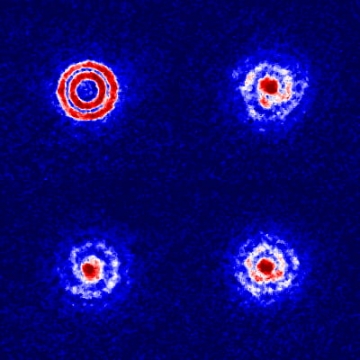
Double ring of lithium atoms cooled nearly to absolute zero temperature (top left), and interference patterns formed when the atoms are released. These patterns can be used to obtain information about quantized supercurrents flowing around the rings.